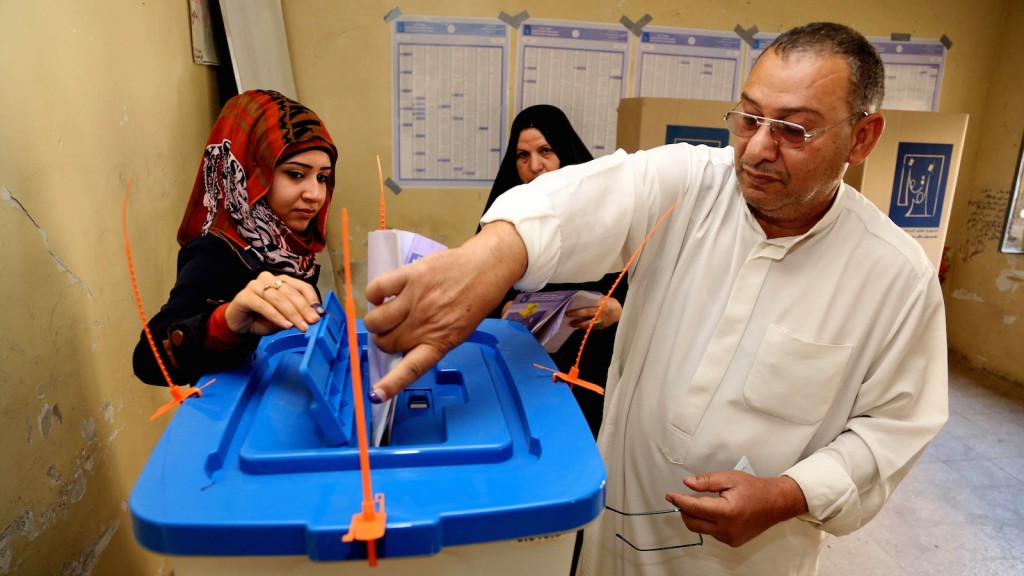Your morning five: Iraq votes
An Iraqi man casts his vote inside a polling station for parliamentary elections in Baghdad, Iraq, Wednesday, April 30, 2014. Iraq is holding its third parliamentary elections since the U.S.-led invasion that toppled dictator Saddam Hussein. More than 22 million voters are eligible to cast their ballots to choose 328 lawmakers out of more than 9,000 candidates. (AP Photo/Karim Kadim)
Share

We tell you five things you need to know this morning.
1. Iraq votes. The last time Iraqis went to the polls in 2011, Americans maintained a substantial military force in the country. The troops have long since withdrawn, however, and today’s vote is a test for Iraq’s own security forces. An al-Qaeda splinter group attempted to intimidate voters in the days before the election, but Iraqi Prime Minister Nouri al-Maliki urged his people to vote. “Terrorists were challenging us and now we challenge them,” he said. Maliki hopes to win a third term.
2. Rio’s Olympics could be a disaster. Athens was bad in 2004, when organizers didn’t put the finishing touches on the city’s Olympic stadium until just two months before the Games. But the International Olympic Committee warns that Rio de Janeiro is struggling mightily to build a number of venues for the 2016 Olympics, and The Globe and Mail reports most construction is “wildly behind schedule.” IOC vice-president John Coates lamented the situation, which he says has never been bleaker. Rio simply must accelerate construction, however, because Coates says there’s no “Plan B.”
3. Suncor prospers without new pipelines. The Calgary-based petroleum producer’s CEO, Steve Williams, says the company benefitted when the lower portion of TransCanada’s Keystone XL pipeline opened in the southern United States. He also pointed to increased rail and tanker shipping in lieu of new pipelines to Alberta’s oilsands, all of which has allowed Suncor to sell its crude for more competitive prices than producers have racked up in recent years.
4. The Russian economy is in recession. The International Monetary Fund says international sanctions and investor flight have weakened an already hobbling economy as the world reacts to Russia’s role in Ukraine’s political crisis. The IMF predicts Russian GDP growth of only 0.2 per cent in 2014 and one per cent next year, and Russia’s central bank says investors have already pulled $64 billion out of the country. Not a powerful position for Vladimir Putin, should he make further threats of retaliation in eastern Ukraine.
5. A death row inmate died after a botched execution. When Oklahoma corrections officials administered a three-drug combination to Clayton Lockett, a 38-year old who killed a teenager with a sawed-off shotgun, the felon didn’t die peacefully. He writhed and clenched his teeth before the proceedings came to a halt, but Lockett’s body never recovered. Eventually, he suffered a cardiac arrest and died. The state will review the case.